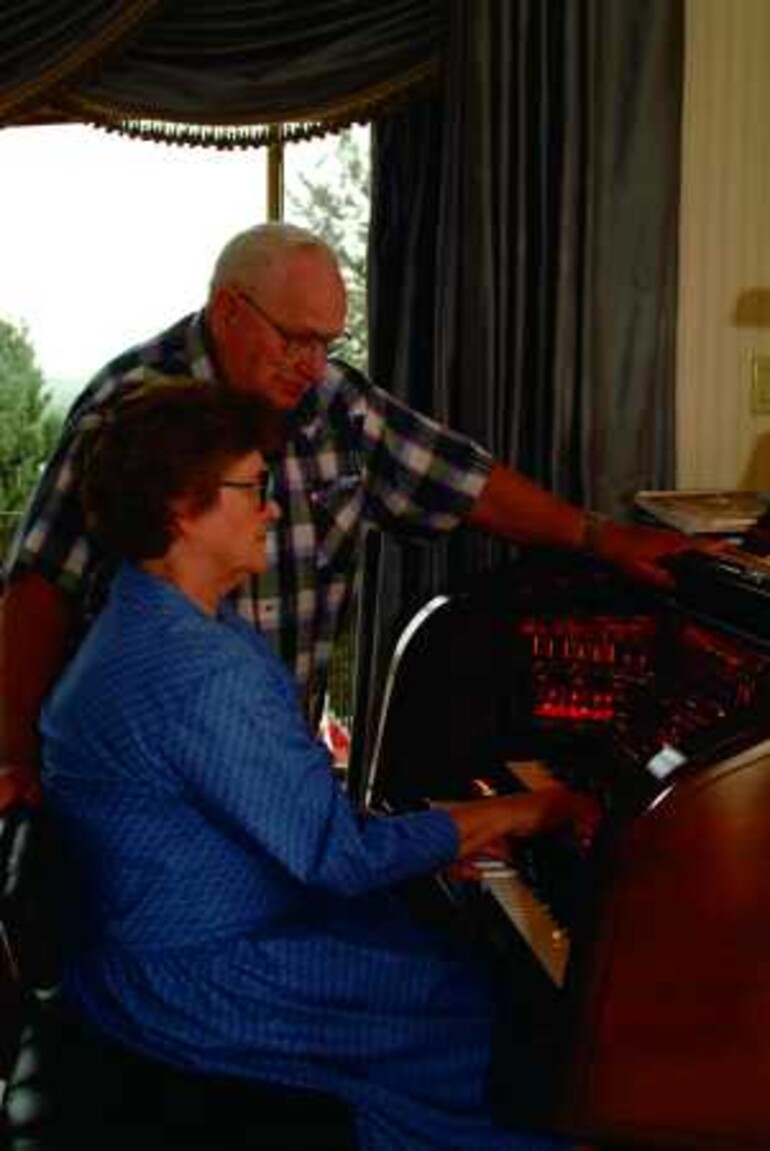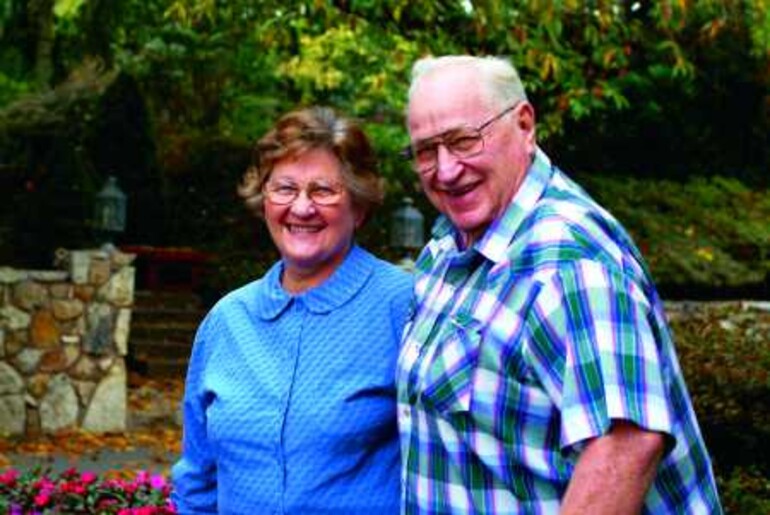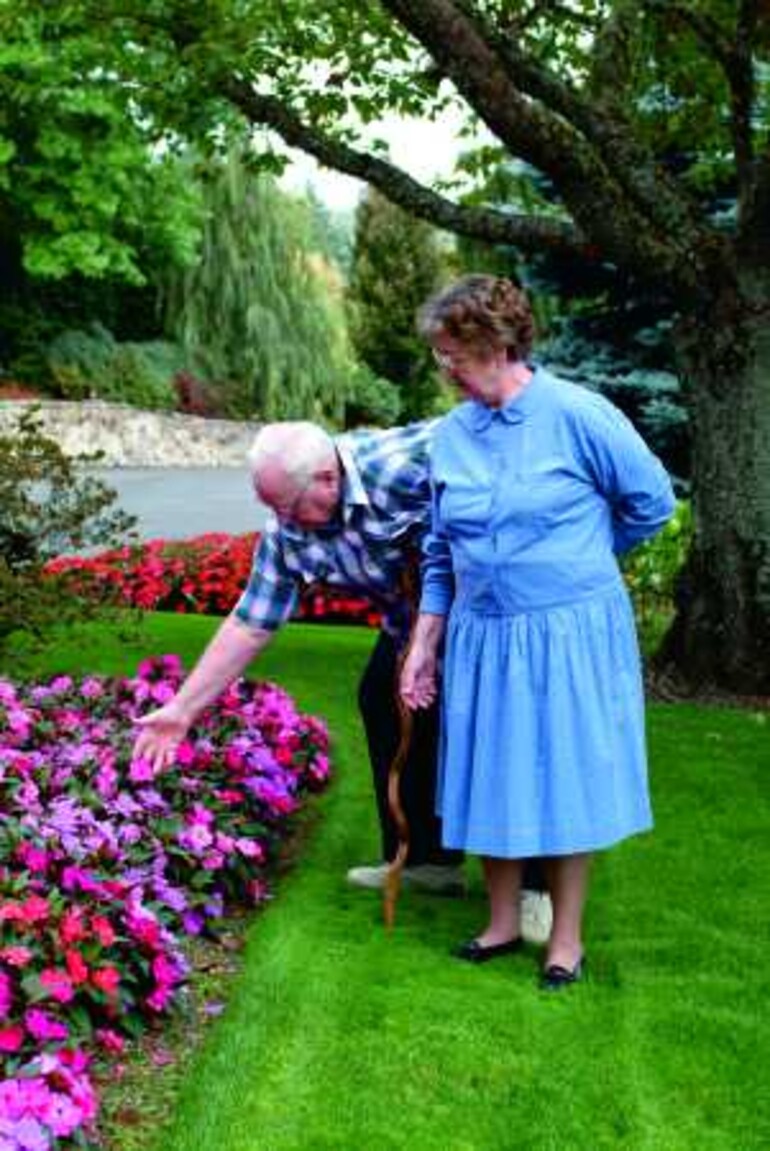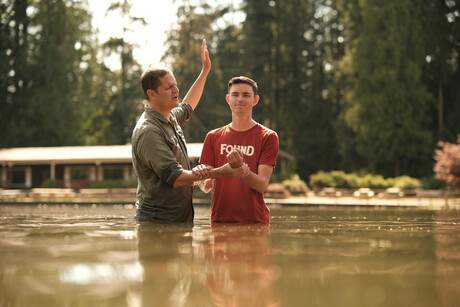One day when he was 14, Glenn Walters decided that he did not want to clean cow barns for the rest of his life. That decision would affect the rest of his life and the lives of countless other people.
Glenn’s Adventist parents were dairy farmers. His father milked 16 cows every morning and evening and gathered eggs from 200 chickens daily. Despite their hard life, Glenn’s mother insisted that her children go to church school.
After his graduation from Laurelwood Academy in 1944, some time in the Navy and a try at college, Glenn went back home to work with his father on the farm. And then he met Viola.
Viola was born in a cabin to a forest ranger family. Between her sophomore and junior years, she began working for the Hillsboro Argus newspaper and worked her way up to circulation manager and assistant to the bookkeeper.
When Glenn and Viola met at the skating rink and started dating, his father was not too happy about his son's relationship with a non-Adventist girl. “My father said to me one day, ‘Say, boy, you are not planning on marrying that girl are you?’ Well, I said, ‘I’m thinking about it.’ ‘Well, if you do, get on that road out there, and you go down it and you don’t come back.’ Viola was not an Adventist, and those old timers had their ideas about people. So I said okay, but it did not deter me. I kept seeing her, and one night I said to her, I want to make a nursery here in Oregon. I want the biggest and best nursery there is. I said, ‘I need some help, will you help me?’ She said, 'um-hmm.’”
“That is how he asked me to marry him,” Viola laughs, and they were married in 1948. Later Glenn’s father said, “I don’t care if she is an Adventist or not, she is the best daughter-in-law we’ve got.”
Viola joined the Adventist church after the birth of their son, Clifford, when the couple decided they were going to raise him as an Adventist. The Walters later added a daughter, Shirley, to their family.
Glenn's love of plants began at age 14 when his mother gave him gladiolus bulbs to plant. When they bloomed in the spring, he began to dream about growing plants to sell.
Walt Blehm, a rose grower from a nearby farm, asked Glenn to come and help him. Glenn worked for him for three seasons and worked five years for another rose grower. He didn't earn a great wage, but he was learning the nursery business.
Then he got a job with Mr. Teufel, a nationally-known holly grower. Glenn remembers that tall, tough, old German. “I said to him, ‘I would like to learn your business.’ He said, 'I don’t teach anybody my business, but you can go to work here and keep your eyes and ears open and learn what you want.’ I said, ‘I’ll accept that.’” Glenn worked for Tuefel for 10 years. Viola worked there for five years as well.
In the meantime, they built a little greenhouse on their land. They couldn’t afford lumber to put over the greenhouse for shade, so they would go into the woods and cut tree limbs for shade. “That’s how we got started, a little bit at a time,” Viola remembers.
In 1967 the Walters bought 80 acres, their first farm. “Boy, did we go to work," exclaims Glenn. "I would tell Viola, 'Make me a thousand rhododendrons of this color,' and she would go out at four in the morning and turn the sprinklers on. She would put her rain clothes on and go in there and pick these cuttings. Boy, you talk about a faithful helper. Then she would put those cuttings in the sand. The next thing I knew, she would not have one thousand, she would have 1,500 or 1,800 cuttings. I asked her, ‘Why would you put 1,500 in when I asked you to put 1,000 in?’ She said, ‘I wanted to make sure I had enough for you.’ So then I would have to go buy another farm someplace.” Ultimately they owned 300 acres all in one spot.
Viola remembers, “Back then the greenhouses were real glass. Glenn would bring home the lumber after work, and I would put three coats of paint on it, and we would work into the night to build the greenhouses.”
Glenn delivered his plants to garden centers after work. “Fred Meyer was one of our first customers there in Raleigh Hills. I built a good rapport with people. They all knew that they would not get any plants on Saturday," Glenn explains. "Never in all that time did we ever give it a thought that we would be missing sales. We would just thank God for keeping us alive and healthy so we could do our work."
Glenn and Viola specialized in outdoor plants, first rhododendrons and azaleas and later adding a lot of different plants for household landscaping. They learned from trial and error, and Viola kept complete records on their experiments. What was good they kept and what was bad they discarded until everything that they grew they could sell.
“We had a good reputation,” Glenn says. “People would buy from our catalog and over the phone. We always saw to it that we treated our people right, we sold number one stock, we treated our customers fairly and gave them a good price.”
Most of their business was done with a handshake. Glenn says, “My reputation in this valley and across the nation was that you don’t need a contract with Glenn. All you need is his word. And that still prevails today.”
They treated their employees the same way. “At one time we had 850 Spanish-speaking people working for us," Glenn says. "We recently found out that one boy, William, was only 14 when he started. He is still working for our company, and his kids are now through college.”
Glenn and Viola chose to be supportive of Adventist churches and schools throughout their lives. They helped their community by providing a fire truck for the Cornelius Fire Department and helping to fund projects for the Hillsboro City Public Library, the Cornelius City Public Library and the Tuality Hospital in Hillsboro.
Whenever they had a little excess money, they would look to the church to spend it, perhaps giving a major donation for a medical missionary launch for the Amazon River, providing a paved parking lot for the Lincoln City (Oregon) Church, or funding an addition to the Tabernacle Church in Portland, Oregon.
After they sold their business, paid the taxes and tucked the rest away in the bank, they said, “Let’s do something for our employees.” And for the past several years, their passion has been to build or buy church buildings for Hispanic congregations. “We just wanted to give them a little something to say thank you for what they’ve done. We hope that we will see them in heaven.”
Glenn says, “God was on our side. In spite of the little hardships that came along, in spite of the hurts, He always opened the pathway for us. Our whole life has been this. Get it done! You can’t worry about what anyone else will do, you just go and get it done. That is one of the major things in our life. You just go and get it done.”











